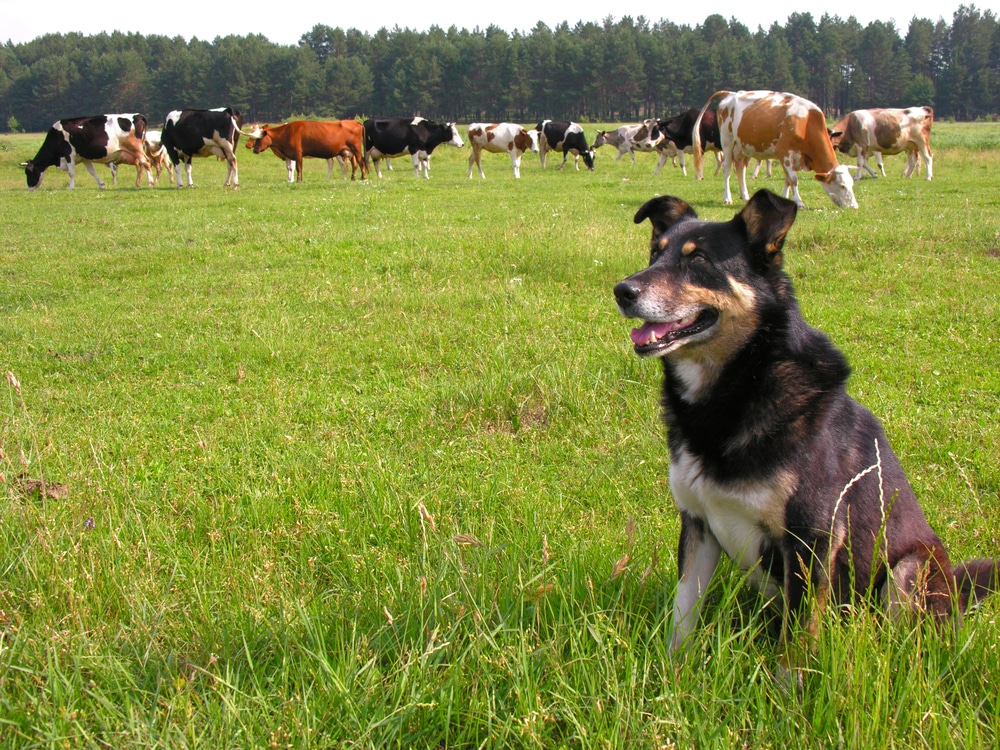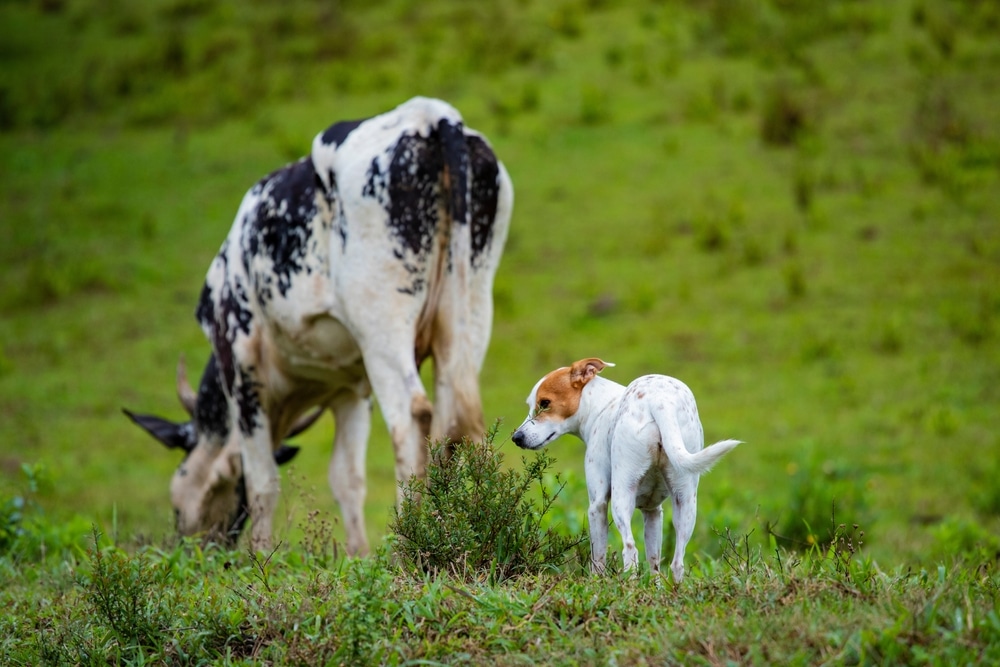It has been a long day at the office, and you come home longing for a glass of wine and cheese. As you start cutting the cheese, you notice you are not alone, and your dog is sitting next to you, drooling heavily. It, too, has had a long day on the couch, and it wants cheese too. So you wonder, can you share some of it with your pooch? As a matter of fact, can dogs have any dairy?
Your dog can eat dairy products, but only if they’re given in proper amounts and without extra additives such as herbs, spices, salt, etc. Always check with your vet before making any changes to your dog’s diet.
Table of Contents
A Quick Word About Dogs And Lactose Intolerance

Lactose is the milk’s sugar, and it is made out of two different simple sugar molecules. The molecule of lactose is quite big, and the intestine is not able to resorb it like that, which is why it needs to be dissolved. In our bodies and in dogs’ bodies, there is an enzyme called lactase, the main purpose of which is to make lactose more simple.
The first food for every puppy is milk. This means that in order for them to use lactose, they will need to produce lactase. Many owners come to me with the thought that dogs are lactose intolerant, meaning that their tummies can’t handle milk. And puppies just proved that this is a wrong conclusion.
The reason why dogs may show signs of discomfort after having milk is that they are not puppies anymore, and they don’t rely on mum’s milk to survive. Their bodies don’t produce the lactase enzyme anymore in the quantity they used to, which is why the dog may have trouble digesting milk.
That is usually something that is said by owners, that the dog is intolerant to dairy and milk when it is simply only unable to digest it properly. However, just as in people, there are dogs that can show signs of allergy to milk, which is different.
Can I Give My Dog Yogurt?
Why not? Especially in the summer, this food is good for cooling down. But there are some things owners need to be mindful of. For example, use plain, simple yogurt for your dog. The ones that are sweet with extra stuff added are not a good choice because, most of the time, they contain too much sugar. Sugar is not good for humans, let alone for dogs because it could potentially lead to weight gain. Another reason is that some yogurts contain a lot of fat, which could potentially lead to pancreatitis.
Also, giving too much yogurt to your dog can cause them some tummy issues. Apart from all of the aforementioned issues, yogurt is pretty healthy because it contains probiotics, proteins, and some calcium and fat.
Can I Give My Dog Cheese?
Cheese can be a good treat, and it’s a great way to sneak a pill into your dog’s food. However, don’t make eating cheese a habit for your dog.
Cheese is high in fat, which could lead to pancreatitis. Different types of cheeses may contain herbs, be saltier, or have garlic or other ingredients that are not good for your dog. So, if you use it, make sure it is plain and not that salty.
What Cheese Can Dogs Have?
We live in a world where cheese comes in all different shapes, sizes, tastes, and added ingredients. Not all of those are good for your canine companion. So, here are a few kinds of cheese you can both enjoy.
Goat Cheese
Goat’s milk contains pretty much the same amount of lactose as cow’s milk, but for an unknown reason, it goes better with the digestive system in dogs. This type of cheese also contains low amounts of lactose and fat, which makes is the perfect choice for dogs.
Mozzarella Cheese
This is another good choice for your dog because it contains little sodium and a low amount of fat. It could be a problem for chewing though, which is why you should try and cut it into smaller bites for your furry friend.
Ricotta Cheese
Low in fat and lactose, this type of cheese can be the perfect occasional treat for your dog.
Conclusion: Can Dogs Have Dairy?
Dairy products can be shared with your furry friend, but we always recommend you check the type of dairy you give. If your dog does not have problems tolerating them, that does not mean that it should become a habit of yours to give them to the dog. This is just something you can use to bribe the naughty pooch who won’t take its deworming tablet.
So, what do you think about dogs being able to have dairy? Let us know your thoughts and why in the comments below!
